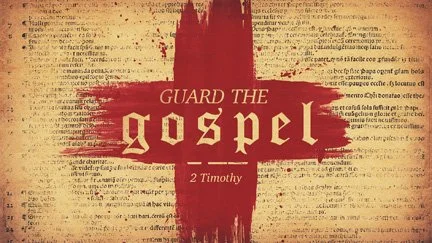Deuteronomy 26:1-11
Thanksgiving is a great holiday. There are no gifts to buy, no trees to decorate, no Elves on the Shelves to keep track of. It’s all about getting together with the people you love to share a fantastic meal and watch the Macy’s Thanksgiving Day Parade, a dog show, and some football on TV. At our house, the menu never changed. Turkey, dressing, rice and gravy (plain and with giblets), peas, cranberry sauce, and my grand-mother’s angel biscuits. The turkey was cooked in a low-temperature oven overnight (which is now said to be dangerous), but when we woke up in the morning after smelling that bird in the oven all night, we were starving! It was cereal or toast in front of the TV for breakfast while my mother and grandmother began working on the rest of the dinner. It seemed like it would never be time to eat!
But finally, they would call my dad into the kitchen to carve the turkey and the other dishes would get placed on the table, and we would come and take our seats. My dad sat at one end and my mom at the other, my brother and I sat across the table from each other, with my grandfather next to my brother and my grandmother next to me. When my mother’s parents were still alive, they sat next to each other beside my brother and my dad’s parents sat beside me. It was a crowded table, loaded with food and surrounded by love and laughter.
The adults would soon start reminiscing, and we would hear, “Do you remember …?” And the stories would begin. Stories about hard times the family had come through and about celebrations, weddings, and other great holidays together. I loved to ask my grandparents what it was like when they were my age, trying to even imagine that they ever were my age! And those stories were and are an important part of the fabric of my life. They told me who I was and where I came from, what kind of people were on my family tree, and what they believed were the most important things in life. They are stories that my brother and I and my dad will still recall together, and laugh, and sometimes share tears. And they are the stories that give me a sense of gratitude and thankfulness for all of the blessings that have come our way, for all the ways that God has been with us and provided for us and gotten us through the good times and the bad.
This scripture reading from Deuteronomy describes a time when the people of Israel were supposed to remember the stories from their past as a prelude to offering thanks to God. They were instructed to take some of the first of all the fruit of the land which they harvested, put it in a basket, and take it to the place of worship, where they would give it to a priest. The priest would set the gift on the altar. And then the one making the offering would recall the history of their people from their settling in Egypt, through the events of the exodus, and then their arrival at the land which God had given them, the promised land. Then they were to bow before the Lord their God. And then they were to celebrate with all the bounty that the Lord had given them, inviting others, including strangers, to participate in the celebration with them.
This passage has a long and rich heritage within the Jewish community. It begins by recalling one of the most important identity stories in Jewish history. The story of Israel’s deliverance from bondage in Egypt was a defining element in their understanding of their covenantal relationship with God. And the ritual described as if it were already happening is actually being established for the time when they actually have come into the land and taken possession of it. The passage begins with the words, “When you come into the land …” and then goes on to give instructions as if this thing were already a reality. It is a statement of confidence that God is going to fulfill his promise to give this land to his chosen people.
This is, in fact, the climax of the Exodus story. After 39 years, 11 months, and one week in the wilderness, the people have finally gathered on the plains of Moab and are ready to enter the promised land. Nick Carter, former president of Andover Newton Theological School in Massachusetts, writes, “After nearly forty years of feeling lost and unsure, having had to learn a mountain of laws and rules, after being chastised for bad behavior (often well deservedly!), and after having spent a good deal of their sojourn being confused, underfed, and poorly housed – wondering why in the world they left Egypt in the first place – here they sit on the highlands overlooking the Jordan River Valley, the promised land lying in the distance! Everything they have endured, worked, and sacrificed for is at long last within their reach. The sense of God’s grace and blessing in return for their faithfulness must be overwhelming.”
And out of that sense of grace and blessing, the people are told to offer up a part of their harvest crops in worship. This is also a great statement of confidence in their future; it presumes that they will soon be settled in the land and able to cultivate crops. They will take possession of this territory which God had brought them to and they would have success in their labors. It’s almost as if they are giving thanks in advance for something that God will do for them in the future.
William Greenway, professor at Austin Presbyterian Theological Seminary, points out the significance of giving the first fruits of the harvest. This is very different from the Western way of thinking about giving. To give the first part of the harvest was to acknowledge that all of the harvest belonged to God and that nothing was first of all theirs. It was to offer God the first part because God really deserved all of it. But for Americans, we are used to giving to God out of the excess of our wealth. We think of it as giving to God what is really ours, what we have worked for, and what is the result of our labor and our talents. But who gives us the talent and the strength for the work? Giving to God isn’t supposed to be giving God what is left over after we have taken care of all our own needs and wants. Giving to God should be done first, in trust that God will provide for our needs. And that trust comes, in part, from remembering how God has provided for us in the past, by sharing the stories.
Archie Smith, Jr., professor at the Pacific School of Theology in Berkeley, CA, shares three insights from reading this passage. First, he says that we need to remember our ancestors. We need to remember those who came before us, just like my family sitting around the table telling the stories of our parents and grandparents and great-grandparents. We remember them because they were examples for us – either for the good or not so good. And we are grateful because they still bear witness to their faith, long after they are gone, encouraging us in our faith. Second, we need to remember the past, the events that shaped us either directly or indirectly. It is important to learn the lessons of history, our family history, or the history of the greater society. Then we are able to move into the future with wisdom and an appreciation of the struggles that people endured in the past. Smith writes, “When we ignore the past or fail to learn the lessons of history, then we are likely to repeat past tragedies on a different scale. When we do not learn from the past, the future becomes the past revisited.” And third, Smith says, we need to experience and express gratitude. We remember the good that has come our way and we thank God for it.
When you gather around the table with your family or friends this week, I hope that you take time to remember, to tell those old stories that somehow never get old. I hope that you find your hearts bursting with gratitude and thankfulness, for all of the love and laughter around the table with you, and for the ways that God has brought you there. It is a day to remember and give thanks.









